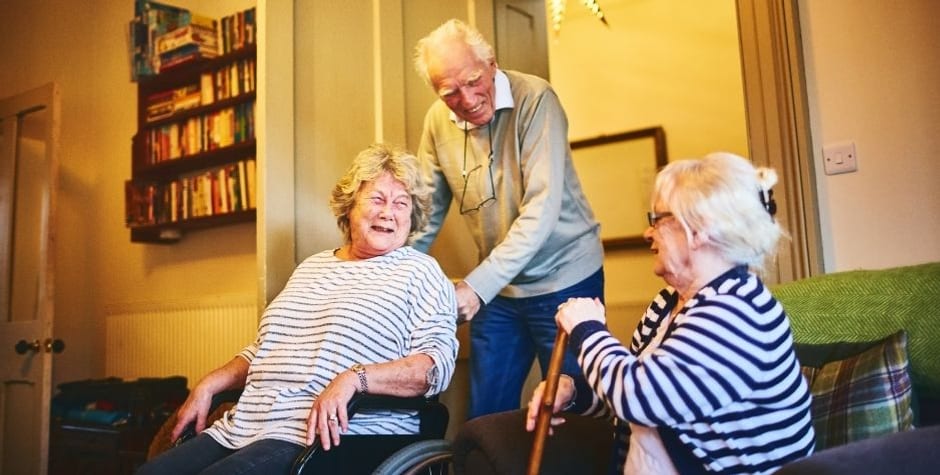

Will the Pro-Euthanasia Lobby Hijack French Care Homes?
Will the Pro-Euthanasia Lobby Hijack French Care Homes?
French MP Olivier Falorni (MoDem) has announced that he will table the first bill of the new legislature, which takes up the end-of-life bill as it was before the dissolution of the Nation assembly. This article, published in Le Figaro, revisits a debate that was interrupted a few days before the legislative elections: the debate on “maisons d'accompagnement” (Care Homes), intermediate structures between home and hospital.
Olivier Falorni's proposed law, which takes up the Attal government's “end-of-life” bill, is one of the few texts likely to get a majority in the new National Assembly. Its future adoption would even be “the only certainty or quasi-certainty that we have politically,” according to Paul Sugy, journalist at Le Figaro. Mr. Falorni would like the Assembly to resume the end-of-life debate where it left off on June 7, two days before the dissolution. At the beginning of June, French MPs began discussing the creation of a new category of medico-social establishment, the “maison d'accompagnement.”
Such Care Homes would be an intermediary solution between the home and the hospital. They would generalize a model, that of the “Maison de vie” in Besançon, initiated and managed by the Red Cross between 2011 and 2017. There, people had ended their days and prepared for their death “as if at home,” benefiting from palliative care and support from their loved ones. Unfortunately, in the absence of an appropriate legal and financial framework, this experiment was not continued, and the twenty other Care Homes are struggling to develop. The law on the end of life could provide the framework these residential facilities need.
Care Homes would have many advantages, including financial ones. The total cost per day of a stay in such a home would be around 250 euros, compared with 1,500 euros in hospital. When the debate on end-of-life issues will resume in the French National Assembly, MPs will have to decide on the ethical aspects of these facilities.
Assisted suicide and euthanasia centers?
After six years of existence of the “Maison de vie” in Besançon, its director Laure Hubidos asserted that “no request for euthanasia has ever been made.” However, the proposed end-of-life law provides for the practice of euthanasia and assisted suicide in Care Homes. This would be an obligation, even for private managers. Associations such as the Red Cross, with ethical principles opposed to such practices, would therefore no longer be able to manage such homes. Nor would it be possible for patients to find a structure in which they would be protected from the moral and psychological pressure to “help them die.”
In practice, if the law is passed unchanged, most of the current “Maisons de vie” projects will disappear, as euthanasia and assisted suicide are contrary to their palliative ethos. The Christian inspiration of these homes is often claimed, and some are run with the support of religious congregations. To exist as future Care Homes, these “Maisons de vie” therefore need, at the very least, to have the right to refuse that “aid in dying” be practised within their walls. By way of comparison, the law states that “a private health establishment may refuse to allow voluntary termination of pregnancy (abortion) to be carried out on its premises.” To prevent the closure of establishments, lawmakers should make similar provision for euthanasia and assisted suicide.
“Nothing would prevent the pro-euthanasia lobby from running a Care Home”
The right of healthcare establishments to refuse euthanasia within their walls is fought by the Association pour le Droit de Mourir dans la Dignité (ADMD, equivalent to the "Dying with Dignity organisation and France's leading pro-euthanasia association). During the spring hearings at the French National Assembly, its president, Jonathan Denis, was the only one to call for all establishments to be compelled “to provide support in the form of active assistance in dying.” When asked by a member of parliament about the “role of [ADMD] in future Care Homes," Mr. Denis replied, 'ADMD will naturally fulfill its role as a support center.”
As it stands, there is nothing in the Falorni bill that would prevent ADMD from managing Care Homes in the future. This would be in line with one of the association's historic projects. Founded in 1980, ADMD had already tried in 1983 to open a “home of gentle death" to practice euthanasia, in order to "act in a direct and provocative way to ‘force the hand’ of the public authorities.” The project was eventually abandoned because of legal risks. At ADMD's last General Assembly in October 2023, Jonathan Denis said he was considering the possible management of a “Care Center," as part of a "transformation" of the association, once it had achieved its initial goal of legalizing assisted suicide. Thus, ADMD aims to evolve like similar associations in Belgium and Switzerland, which have become the main players in the field of euthanasia and assisted suicide.
Prior to the dissolution, a single safeguard had been put in place by deputies in the bill: these Care Homes should not pursue a “profit-making purpose.” This anti-capitalist restriction was unnecessary. The law authorizes private and profit-making organizations to run socio-medical establishments of any kind, and they do so just as well as any other organizations. It's not the “profit motive” that's dangerous, but the “euthanasia motive.” When the debate on the end of life will resume, the new Assembly should anticipate the danger of ADMD hijacking the Care Homes.
SIGNATURES









